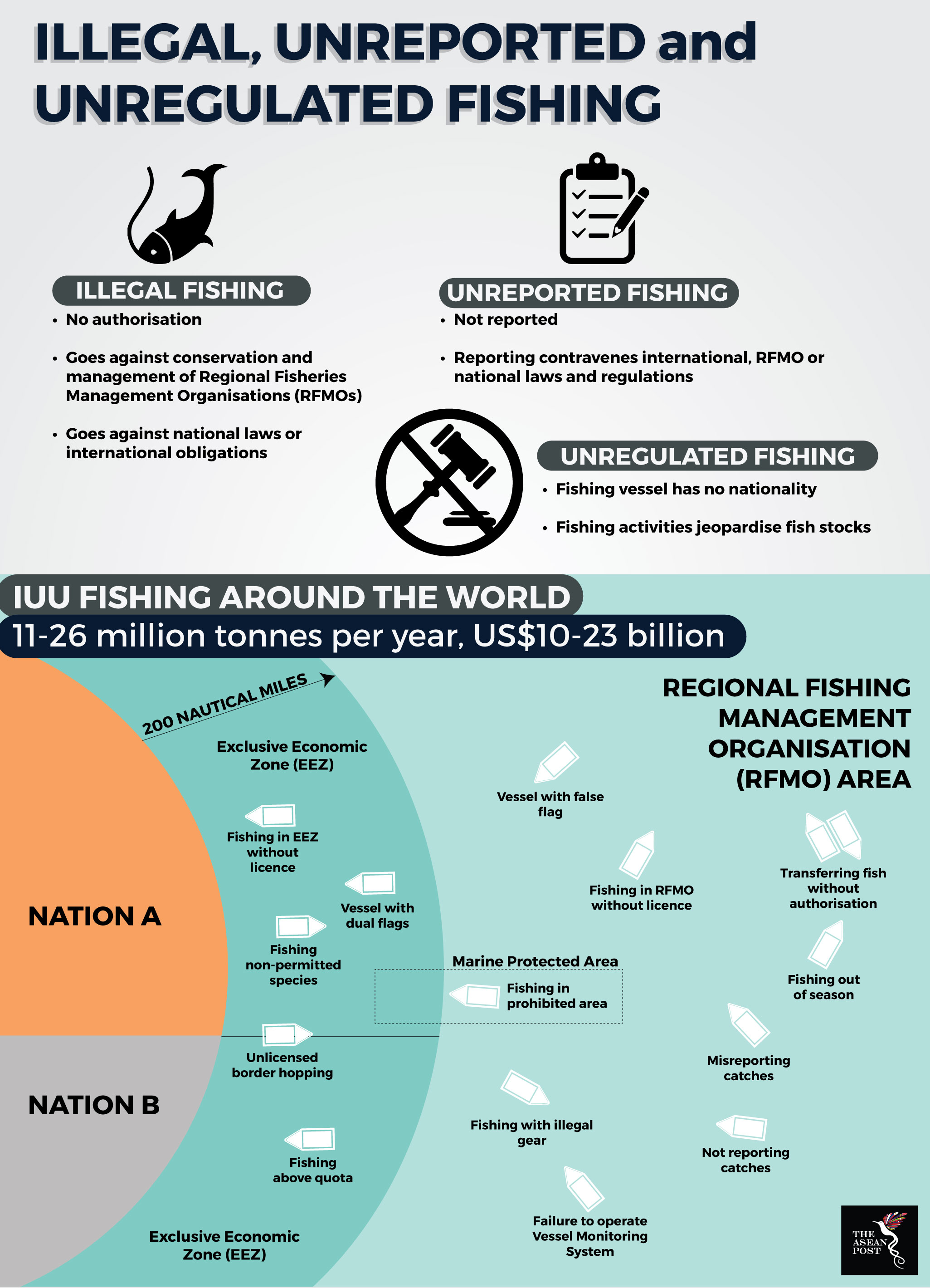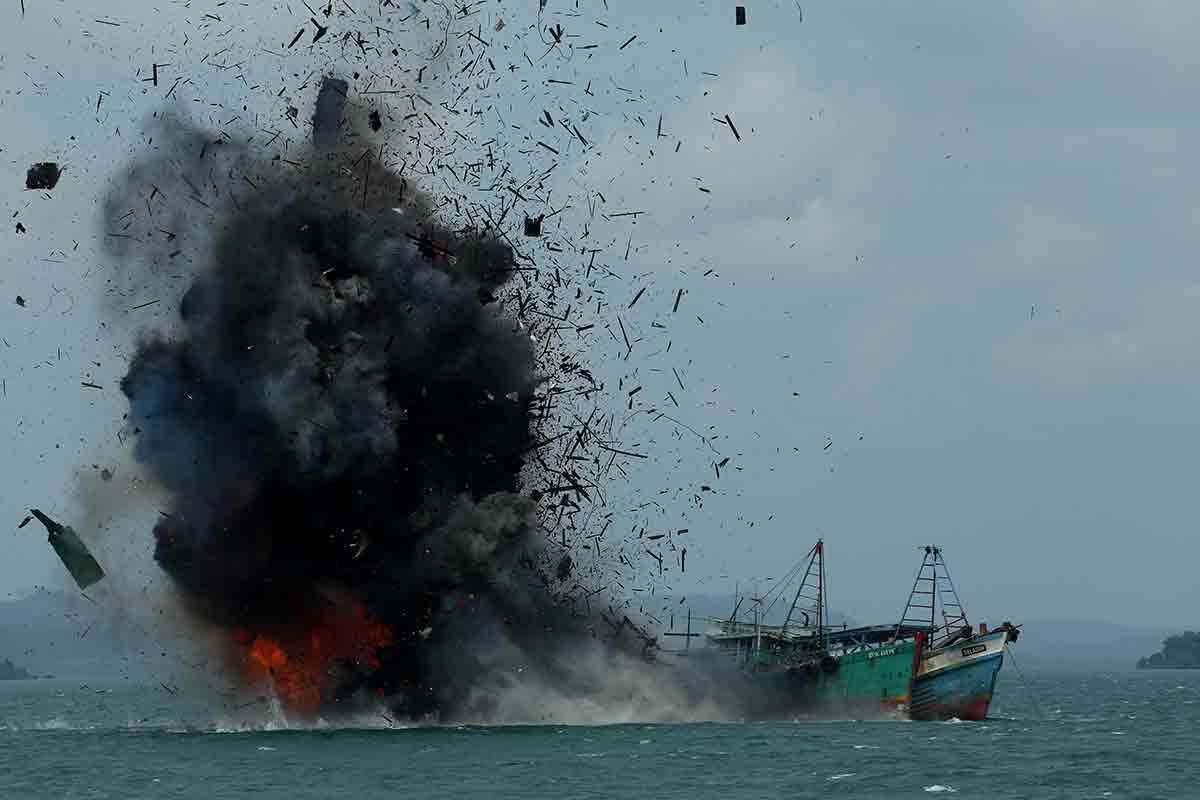In soccer, the yellow card is a warning for a player to behave himself as he may get sent off the pitch if he receives a second one. It seems the yellow card works just as well when it comes to combatting illegal, unreported and unregulated (IUU) fishing.
The European Commission (EC) enacted a tough legislation against IUU fishing in 2010 which identifies marine fisheries products by their exporting state or the flag under which shipping vessels operate. It holds those countries accountable for IUU activities within their jurisdictions and regularly issues a list of IUU vessels based on information provided by Regional Fisheries Management Organisations (RFMOs).
Countries that disregard IUU fishing are first put on notice and issued a “yellow card.” At this stage, called pre-identification, the EC will open a formal dialogue with the state and observe the situation for at least six months. If the country shows improvement in its anti-IUU fishing efforts, the observation period will continue until the yellow card is eventually rescinded.
Those that do not show satisfactory progress after the monitoring period are identified or categorised as uncooperative and issued a “red card.” Marine products from these countries are banned from entering the European Union (EU). The final state is the blacklist, which prohibits fisheries products caught by all fishing vessels operating under that country’s flag. EU fisheries companies are also banned from operating in those countries.
 Source: European Commission, US National Intelligence Council
Source: European Commission, US National Intelligence Council
ASEAN is six years late to the game compared to the EU but it has begun to take notice of IUU fishing. Thailand hosted an ASEAN-Southeast Asian Fisheries Development Center (SEAFDEC) regional cooperation forum in August 2016. Member countries jointly declared war on IUU fishing and pledged to enhance sustainable fishing in the region. It aims to increase the competitiveness of ASEAN’s seafood industry and to comply with international standards and regulations.
This initiative could partly be thanks to the EC. The Philippines was yellow carded in June 2014 but managed to get it rescinded in April the following year. However, Thailand was yellow carded in April 2015 and has yet to have it revoked. Ironically, Thailand played host to the 2016 forum.
At the meeting, Dr Theerapat Prayurasiddhi, then-Permanent Secretary of Thailand’s Ministry of Agriculture and Cooperatives declared IUU as a serious threat to the sustainability of fishery resources and the marine environment. He said that combatting IUU fishing was complicated as fishery resources are shared by several countries and fisheries products are traded intra-regionally before exportation.
More cooperation needed
Addressing these problems would require cooperation between agencies in various countries. Monitoring, control and surveillance (MCS) programs needed to be strengthened, the traceability of fish and fishery product sources needed to be enhanced, Dr Prayurasiddhi said.
Vietnam was the latest to get a yellow card in October 2017. It is anxious to get it rescinded as its seafood export industry is thriving. Exports hit an all-time high of US$8.3 billion last year, surging past the government’s initial target of US$7.1 billion.
Seafood exports in the first seven months of 2018 rose 6.3 percent year-on-year to the value of US$4.63 billion. The United States (US), Japan, China and South Korea account for 53.5 percent of the total value. A ban by the EC will effectively shut out a big market.
EC officials recently completed an inspection of Vietnam’s anti-IUU efforts and will conduct another review in January.
Cambodia received a yellow card back in November 2012 and was downgraded further to the EC’s blacklist in March 2014. All fisheries products caught by fishing vessels registered in Cambodia have since been banned from the EU.
As the second-largest marine capture fisheries producer in the world behind China, Indonesia has its fair share of IUU fishing problems. Up until 2014, it has been losing an estimated US$4 billion a year to IUU fishing.
It introduced restrictions on fishing, including banning fish transfers at sea and prohibiting foreign fishing boats from its waters. Illegal foreign fishing boats are seized and blown up. This prevents illegal fishing syndicates from buying their vessels back when they are put on auction, said Indonesia’s Minister of Fisheries and Maritime Affairs Susi Pudjiastuti. Foreign fishing activity has dropped more than 90 percent since 2014.
A flurry of yellow cards may indicate an ill-tempered game of soccer but with the United Nations backing the fight against IUU through its Food and Agriculture Organization (FAO), more yellows may yet see the end of IUU fishing by 2020.
